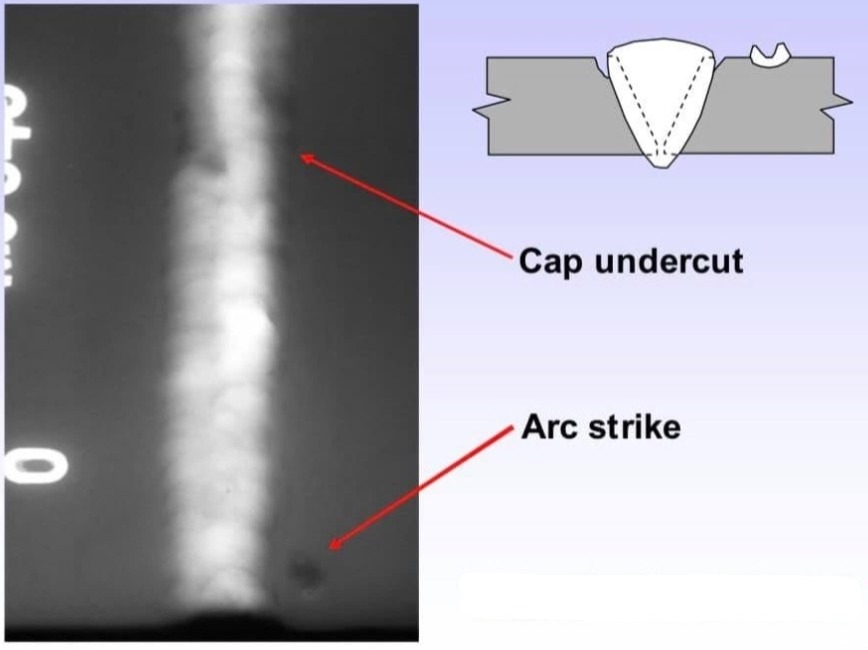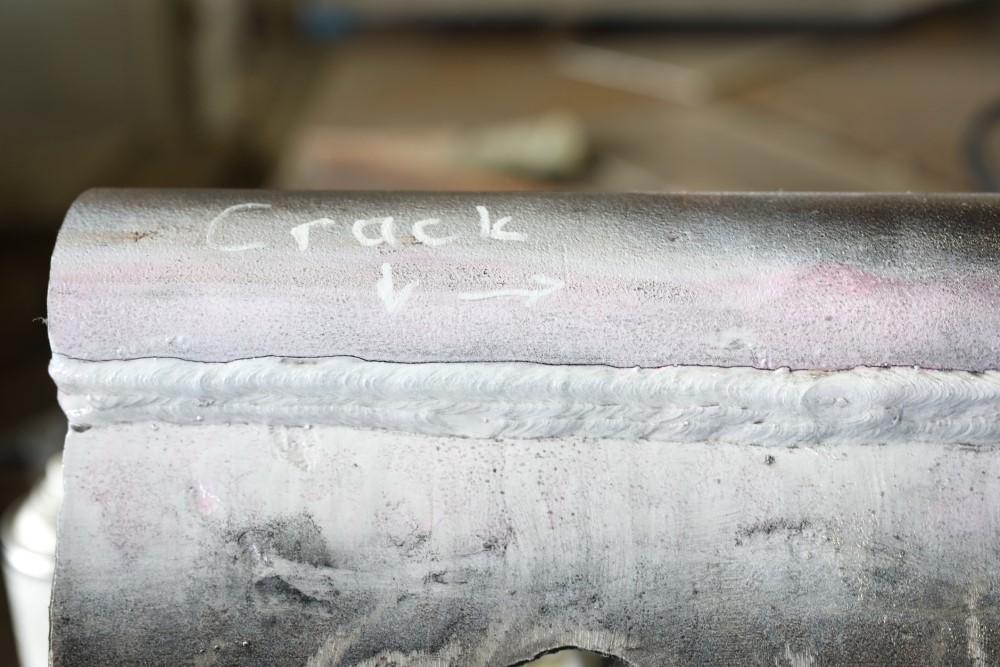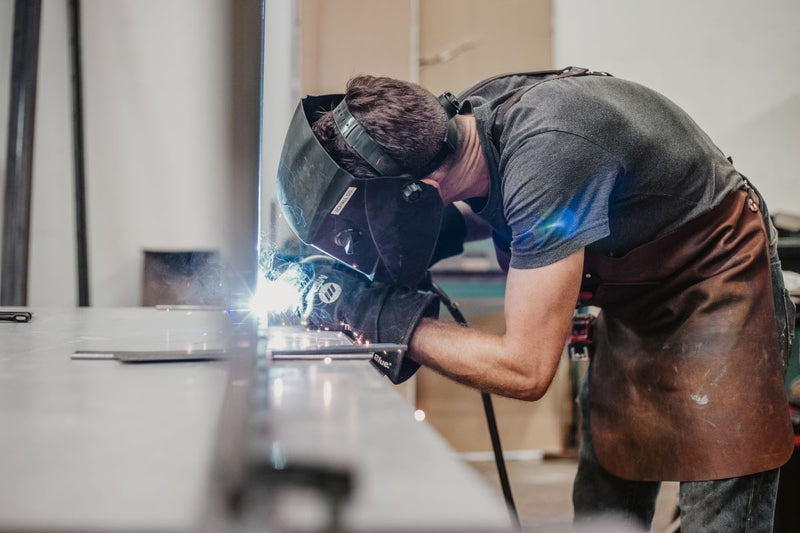A Comprehensive Guide to Identifying, Averting, and Mending Undercut Welding Issues in Your Welding Tasks
In the world of welding, running into undercut problems is a typical difficulty that can jeopardize the architectural honesty and total top quality of your welding projects. Remain tuned as we explore the vital elements of determining, protecting against, and fixing undercut welding problems, providing you with beneficial insights and approaches to boost your welding abilities to the next level.
Usual Root Causes Of Undercut Welding
Undercut welding, a common concern in welding processes, can be brought on by different factors that need to be carefully determined and addressed to ensure the stability of the weld joint. One of the primary sources of undercut welding is extreme warm input. When the welding criteria, such as voltage, current, or travel speed, are not properly established, an extreme amount of heat can be created. This excess heat leads to the melting and succeeding removal of the base product along the edges of the weld joint, creating a groove called undercut.
An additional usual root cause of undercut welding is improper welding technique. Insufficient manipulation of the welding torch or weapon, wrong angle or distance in between the workpiece and the lantern, or inconsistent travel speed can all add to the formation of undercut. Additionally, utilizing the incorrect welding consumables or electrode size for a specific joint arrangement can result in undercut issues. Identifying these source and applying restorative measures is essential in stopping and fixing undercut welding issues in welding tasks.
Identifying Undercut in Welds

To identify undercut accurately, correct lighting and magnifying devices are vital to examine the weld joint completely. Making use of tools such as a welding gauge or a magnifying glass can help in finding even the smallest undercut flaws. Furthermore, running a finger or a finger nail along the weld joint can occasionally expose undercut, as the surface may really feel unequal or have a dip where the undercut exists.
Safety Nets for Undercut
Having a deep understanding of the causes of undercut in welds allows for the application of effective preventive procedures to maintain weld high quality and honesty. These setups ought to be maximized to avoid excessive warmth input, which can lead to undercut development.

Methods for Fixing Undercut

To deal with undercut concerns successfully, welders can use details techniques intended at fixing the flaw and bring back the stability of the weld joint. One method is to change the welding parameters, such as the voltage, present, and take a trip speed, to make certain proper warm input and blend. Increasing the welding existing or minimizing the traveling speed can assist fill out the undercut. Additionally, altering the welding strategy from a push to a drag or vice versa can also assist reduce undercut.
One more strategy is to make use of a weaving movement while welding to guarantee correct sidewall fusion and fill in the undercut. By oscillating the welding arc back and forth within the weld joint, the welder can transfer a lot more filler product into the undercut areas, effectively getting rid of the problem.
Moreover, grinding out the undercut and rewelding the joint can go to this website be a viable option for extra extreme undercut issues - Preventing weld undercut. This procedure involves eliminating the undercut section, preparing the base steel, and afterwards rewelding the joint with proper welding criteria and techniques to avoid undercut from repeating

Expert Tips for Staying Clear Of Undercut
Using correct welding techniques and keeping control over essential welding parameters are essential techniques for welders aiming to protect against undercut in their weld joints. One professional idea for avoiding undercut is to make sure correct joint preparation. This involves cleaning the base metal extensively to get rid of any impurities that might cause undercut formation. Furthermore, choosing the suitable welding procedure and filler steel for the particular application can assist avoid undercut. Welders should additionally pay close interest to the welding present and voltage setups, guaranteeing they are within the recommended variety to prevent getting too hot and webpage prospective undercut. Preserving a constant traveling rate during the welding procedure is one more essential idea to avoid undercut. By relocating at a stable speed, welders can make sure appropriate blend and lower the likelihood of undercut development. Lastly, evaluating the weld bead after conclusion can aid identify any type of indicators of undercut very early on, enabling immediate rehabilitative activity to be taken.
Conclusion
To conclude, identifying, protecting against, and taking care of undercut welding issues in your welding jobs is essential for ensuring solid and sturdy welds. Preventing weld undercut. By understanding the usual root causes of undercut, being able to determine it in welds, executing precautionary measures, and using appropriate strategies for fixing undercut, you can avoid potential issues and create top quality welds. Adhering to expert pointers for staying clear of undercut can aid you improve your welding abilities and generate better lead to your projects
Undercut welding, a common problem in welding processes, can be triggered by various aspects that require to be thoroughly identified and resolved to ensure the stability of the weld joint. Furthermore, running a finger or a fingernail along the weld joint can dig this often reveal undercut, as the surface may really feel irregular or have a dip where the undercut exists.
Making use of proper welding strategies and keeping control over key welding parameters are vital strategies for welders aiming to prevent undercut in their weld joints.In conclusion, recognizing, avoiding, and dealing with undercut welding problems in your welding jobs is important for making certain long lasting and strong welds. By recognizing the typical reasons of undercut, being able to determine it in welds, implementing preventive actions, and utilizing appropriate techniques for fixing undercut, you can stay clear of possible issues and produce high-quality welds.
Comments on “Just How to Avoid Weld Undercut: Vital Tips for Welders”